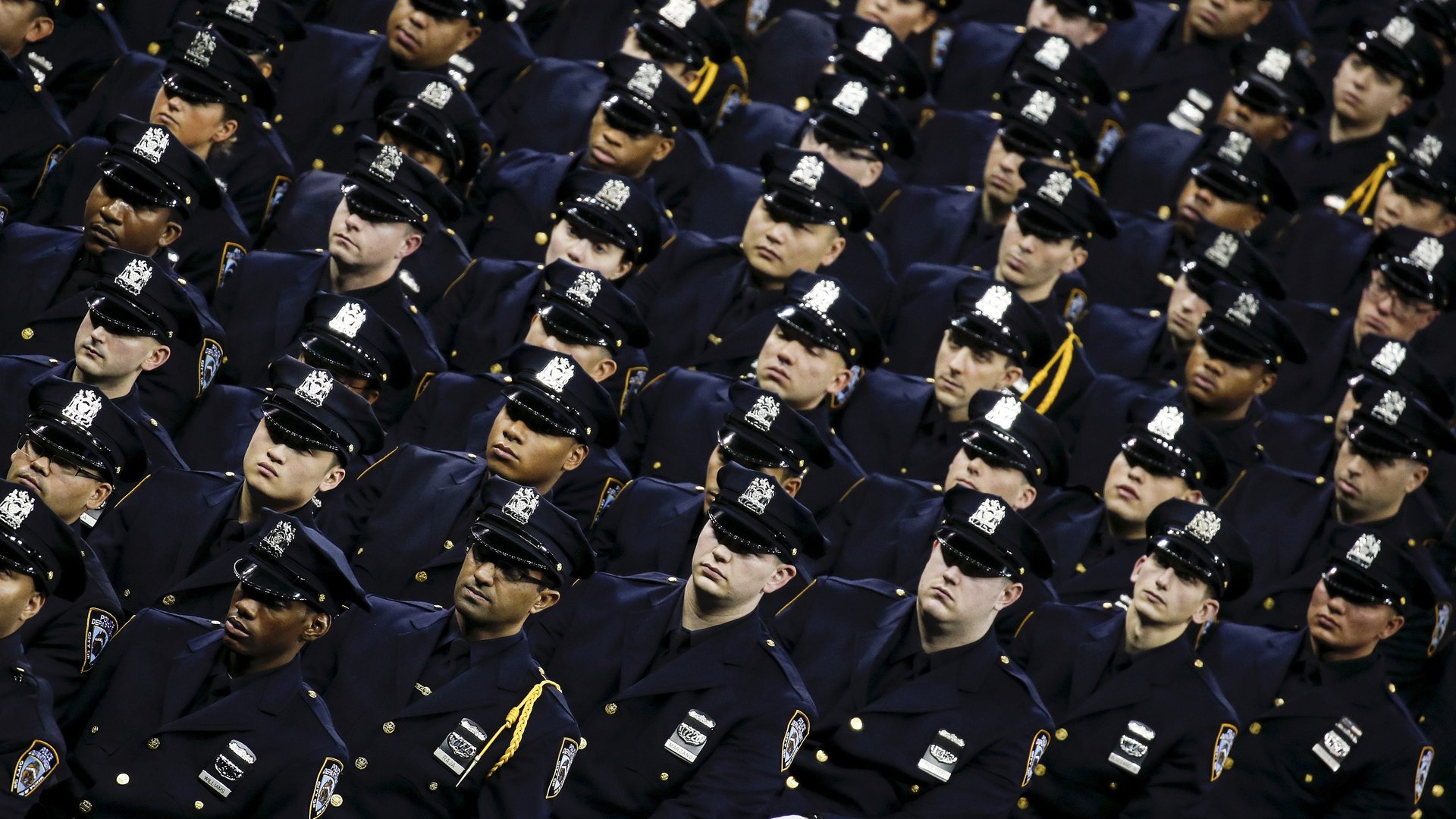The internet knows what should come next after Alabama lawmakers allow a mega-church to form its own police force
In Alabama, lawmakers approved a megachurch’s request to have its own police force, a move that is both unprecedented in the United States, and troubling from several perspectives.


In Alabama, lawmakers approved a megachurch’s request to have its own police force, a move that is both unprecedented in the United States, and troubling from several perspectives.
The state’s senate passed on Tuesday, April 11, legislation that would allow the Briarwood Presbyterian Church in suburban Birmingham to hire police officers, which the church says it needs to avoid the possibility of a shooting at the K-12 school it runs on its premises. The force would mirror teams of police officers on college campuses, and the church would foot the bill.
Social media users were quick to mock the notion:
But the bill would have serious consequences, and it sparked concern even among lawmakers who supported the bill. One senator worried that the force could be used to cover up crimes instead of preventing them, but he voted to advance the bill after being assured this would not be the case.
The American Civil Liberties Union has a different, fundamental criticism: ”It’s our view this would plainly be unconstitutional,” Randall Marshall, the group’s acting executive director, told NBC News. Marshall said the bill, along with another piece of legislation in the Alabama House of Representatives that would allow churches to designate certain congregants to use their guns to ensure security, “would not survive a legal challenge,” because it violates the First Amendment’s Establishment Clause, which essentially speaks about the separation of church and state in the US. The bills “inextricably intertwine state authority and power with church operations.”
The internet immediately pointed out the hypocrisy of the situation:
When pressed why not just hire private security guards, the church’s representative sent Quartz a statement, which did not answer the question, but provided Briarwood’s reasoning:
After the shooting at Sandy Hook and in the wake of similar assaults at churches and schools, Briarwood recognized the need to provide qualified first responders to coordinate with local law enforcement who so heroically and effectively serve their communities….While seeking to be responsible, ultimately the church proclaims that its trust is in the Lord of Glory who sovereignly cares and provides for His people.
Shocked by the news, some had ideas on how to ensure the law would get repealed (although the legislative process is not over yet, the bill was referred to a committee in the state’s House):